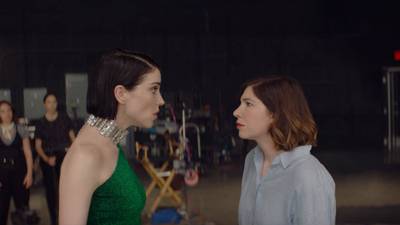

Reviews


As one of the central themes of HIFF this year, a diverse selection of African films took Finnish audiences across the culturally rich continent and into the vast imaginations of African filmmakers. The eclectic selections were further complimented by the five extraordinary short films chosen for the African Express – Short Station. Each of these short films was able to deliver a wealth of human experiences in under 30 minutes of cinematic splendor.
READAfrican Cinema Takes Center Stage
Sharron L. Todd reviews African Express Short Films screened at the 34th Helsinki International Film Festival and why it has an elevated impact on the festival.
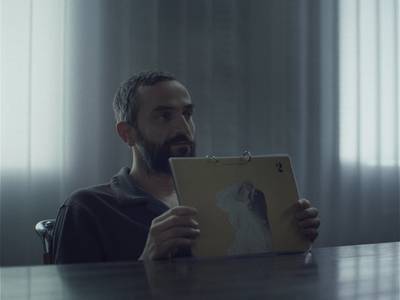

Apples takes place during a fictional pandemic that erases people’s memories on a random basis. Such is the case of the main character, Aris, who is struck by oblivion while riding the bus. Once a person has forgotten, they are taken to the hospital and usually claimed by their loved ones. When nobody comes looking for Aris, he is enrolled in a reintegration programme where he is given the task of performing various activities and documenting them in photographs.
READApples: The fragility of identity constructs


Our Western popular culture is youth-obsessed and having elderly people as main characters is a rare sight. And when it comes to queer representation in cinema, there aren’t enough lesbian movies. A movie about lesbian elderly women? Well, definitely there isn’t enough of those either, and that makes Two of Us, a French film written and directed by Italian director-writer Filippo Meneghetti, a welcomed yet flawed addition to queer representation.
READTwo of Us: On Ageing Queer Love & Aged Queer Stereotypes
Isa Komsi’s review of Filippo Meneghetti’s film ‘Two of Us’
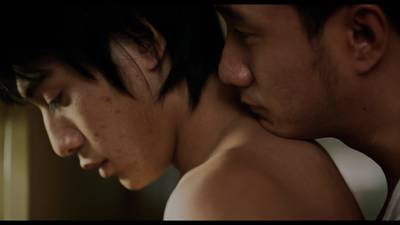

Lan Yu is a story about a melodramatic love affair between an architecture student, Lan Yu, and a wealthy businessman, Han Dong. They keep on finding each other throughout the years till time runs out.
READLan Yu: Attraction of Opposites; Between Symbolism in Beijing Comrades
Yilin Ma’s review of Stanley Kwan’s film ‘Lan Yu’.


‘Bliss’ (2021), written and directed by Henrika Kull, stars Adam Hoya and Katharina Behrens. The film follows a relationship between Maria (Hoya) and Sacsha (Behrens), two women who meet each other while employed as sex workers in the same brothel in Berlin.
READBliss: With a Light Touch, With a Tender Gaze
Amanda Hunt’s review of Henrika Kull’s film ‘Bliss’.
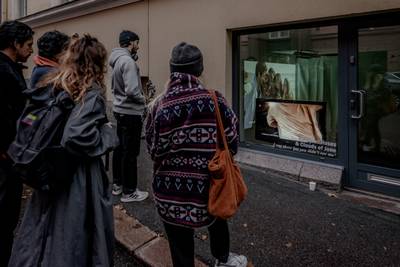

A review on ‘Sarajevo Roses and Clouds of June’ exhibition by Samra Šabanović and Sheung Yiu at Third Space, Helsniki.
READThe (Un)disputed Portrait of the Middle-Class
Fjolla Hoxha reviews ‘Sarajevo Roses and Clouds of June’ an exhibition about what photography exposes in terms of socio-political relationships within the hegemony of the power structures that reign us.
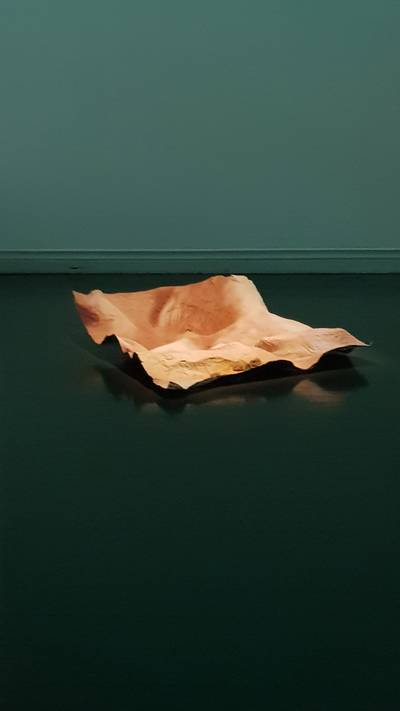

A I S T I T – coming to our senses is a traveling exhibition with a satellite programme, a publication and three part podcast and it happened/will happen in various locations in Paris, London, Berlin, Helsinki, and Ghent. Since the exhibition deals with the senses my plan for the review was to try and experience it primarily from a non-visual perspective and focus on how the exhibition brings in the audience and allows them to experience and feel their way through the works.
READA I S T I T – Coming to Our Senses: A Review in Three Paths
Timo S. Tuhkanen’s review asks if institutional structures allow coming to our senses. And is it possible to break the binary between metaphysics and phenomenology?
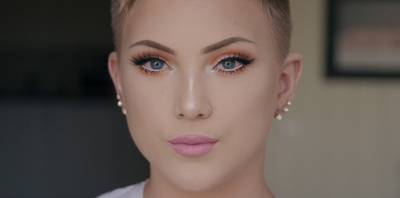

I often wonder if it is a specific language that working-class families speak. When the possibilities of the world feel so limited through money and social power, are we even allowed to dream? Knowing how the world can derail dreams, the parents of these families assume the role of society before their children ever leave the home.
READHello World: Tell Me if Something Bad Happens
Shia Conlon’s review of Kenneth Elvebakk’s film ‘Hello World’.


Never Gonna Snow Again really raises the concerns around environmentalism. It’s trying to tell this message of a failing world through some humour and fantasy. The protagonist’s integration into this Polish community is like a wake-up call to the inhabitants, who many seem to be oblivious to the growing issue of climate change.
READNever Gonna Snow Again: a hypnotic take on the environmental downfall
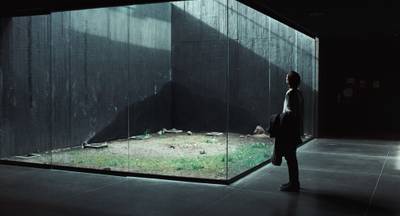

The captivating nature of Memoria depends on the work of some notable artists. The eccentric Tilda Swinton stars as the leading figure, Jessica, whose life suddenly starts revolving around a strange, unrecognizable sound that keeps interrupting her everyday life. The urge to find it is intertwined with and partly hidden in the subtlety of her obsession for more. Swinton’s acting is stripped of emotion but not unfeeling, for she has the great skill of reserving considerable emotion behind the minimalistic expression.
READMemoria: On Remembrance and Stillness
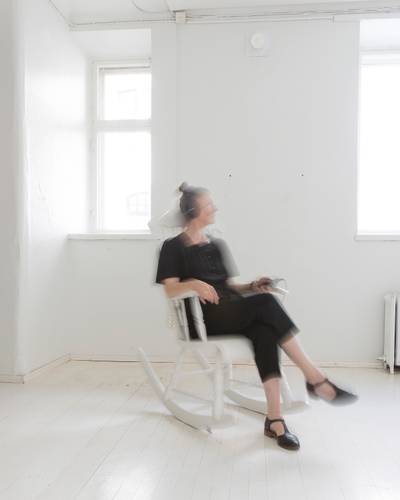

To be received by the artist, to be held by their presence and attentively guided into and through the work, in a personalised performance feels timely. After a long period of self-containment and social isolation— protecting each other and ourselves through reducing contact—this personalised care and shared intimacy with another feels like tending wounds. As a guest, you are “hand-guided” through artworks dealing with uncomfortable “subjects”, ones that puncture our boundaries and explicate the uncontainability of our bodies and interdependencies with others.
READI Versus Us Versus I
Yvonne Billimore reviews the exhibition ‘TICK ACTs’ as a reflections on encountering and thinking-with “other” bodies through art.

